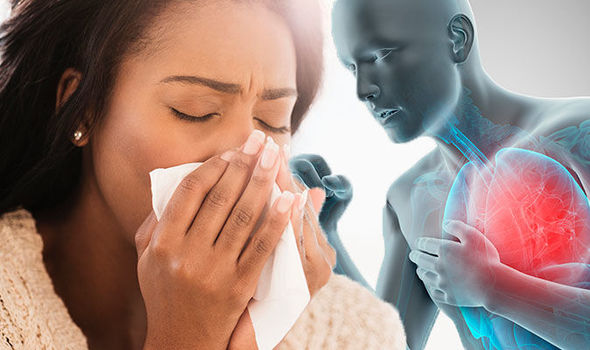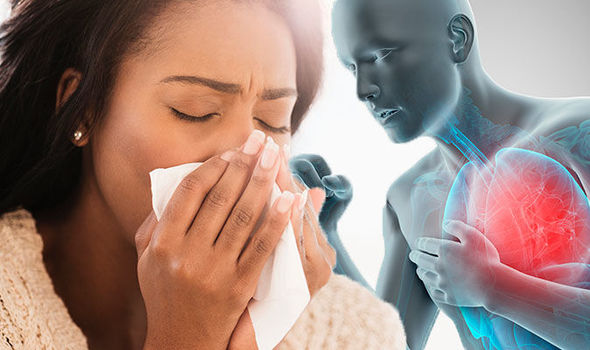Cold & Flu
Cold and flu are both viral infections that share similar symptoms. It is important to realise that the flu is not “a bad cold”. Although they are both viral in nature, different viruses cause them which means there are key differences you should know about.

There are over 200 viruses that cause the common cold.
There are three viruses that cause flu.
There are different strains of the flu virus; hence the flu vaccine needs to be modified every year to specifically target the most prevalent strain.
Symptoms
Cold• Runny nose; starts which clear mucus than turns to darker mucus as the infection goes on• Blocked nose • Mild fever• Sore throat• Headache• Sneezing• Cough
Flu• Fever• Sweating & shivering• Muscle aches• Weakness, no energy
The flu can also cause a runny nose, sneezing and cough which are also the typical symptoms of a cold. However, it is the high fever, muscle aches and severe weakness and fatigue that are characteristic of flu rather than the common cold.
Who is at risk?
It is very common to catch a cold in the winter months. It is much less common to catch flu.
The people who are more at risk of developing the symptoms of the flu are;• People over 65• People with a lowered immunity; this is people with a chronic medical condition such as asthma, diabetes, kidney, lung and heart disease.• Pregnant woman
Cold and flu are viral, not bacterial infections. For this reason antibiotics are not prescribed by doctors as they will not effectively treat the underlying cause.

How to get better
Rest and relaxation is the best way to help your body recover from a cold and flu. Other simple remedies include;• Fluids• Paracetamol & ibuprofen will help relieve fever and discomfort caused by sore throat, headache and muscle aches• Decongestants to help relieve blocked nose and sinuses• Healthy eating• Throat sprays such as difflam which contains a mild local anaesthetic, which helps ease the pain of a sore throat
The flu is a more severe viral infection than the common cold. Due to the increased strain placed on the immune system caused by the influenza virus, the body is more at risk of severe complications such as pneumonia and bronchitis.
If your symptoms are getting worst rather than better with time and your develop new symptoms such as worstening cough, shortness of breath, wheeze or chest pains it is essential to seek medical attention. Your symptoms can be fully assessed and appropriate treatment started.
Vitamin C
The role of vitamin C has been studied for many years as a treatment for cold and flu but the results have been inconsistent.
It was found that Vitamin C did not prevent people developing a cold or flu, but taking vitamin C whilst suffering the symptoms did help reduce the severity of symptoms in some cases.
Vitamin C is a water-soluble vitamin. This means that your body absorbs the level that is needed and the excess is excreted in urine, so there is no risk of toxic levels being reached when vitamin C is taken a as supplement.
On balance, taking vitamin C in the form of a supplement in conjunction with a balanced diet will help support your body whilst it fights the infection although it may not speed up your recovery.

Preventing flu and colds
The cold and flu virus are contained in water droplets that are spread into the air when an infected person coughs or sneezes. The droplets them land on surfaces, food or people and are very easily spread.
You don’t need to arm yourself with an alcohol gel, but simple steps can be taken to avoid the spread:• Washing your hands is essential. • Sneeze into a tissue and throw it away immediately,• Regularly wipe down surfaces that may harbour the virus such as door handles and computer keyboards.
Summary
Cold and flu are both viral infections.• They are NOT the same• Although the symptoms are similar, cold and flu are caused by different viruses• The flu is a more severe infection than a cold• Antibiotics are not useful in treating the cold and flu, as they are not bacterial infections• Simple over the counter treatments are effective and must combined with adequate to help support your body in fighting the infection.

Dr Jane LeonardMBCHB. BSC HONS (1ST ) MRCGP
104 Harley Street, London W1G 7JD
+44 (0)20 7632 7558
[email protected]
DrJaneLeonard.co.uk

Dr Jane Leonard is a fully qualified GP and Cosmetic doctor, graduating from the University of Manchester. She also has a first class honours degree in anatomical sciences, in which she focused her studies on the anatomy of the face, head and neck.
She completed her aesthetic training on Harley Street following a stint at The Alfred Hospital Medical Research Centre, in Melbourne, Australia. Her work in Dermatology research has been published in the prestigious Australasian Journal of Dermatology.
Almost a decade of aesthetic treatment experience, Dr Leonard has been nominated for the Cosmetic Doctor of the Year in the prestigious Safety in Beauty Diamond Awards.















